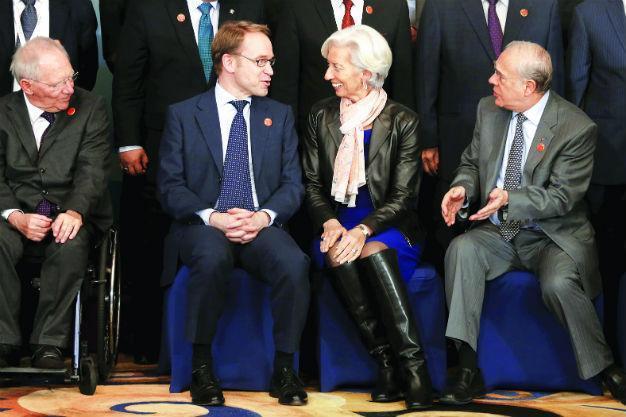Bundesbank boss criticises ECB 'bazooka'
BERLIN - Agence France-Presse

REUTERS photo
The president of Germany's Bundesbank on March 19 criticised the latest package of stimulus measures by the ECB including slashing rates still further, warning against "reckless" moves and unintended fallout.
In an interview with German journalists Jens Weidmann indicated he was "not convinced" by the efficacy of an unprecedented barrage of stimulus measures to jumpstart the eurozone economy.
"The package decided on did not convince me overall," said Weidmann.
"I have always drawn attention to the fact that the longer the effect of an 'ultra-relaxed' monetary policy lasts the weaker (that effect) becomes, Weidmann told reporters from the Funke Mediengruppe media group.
"The more you speed things up the greater the risk of secondary effects," said Weidmann.
The Bundesbank, hailed for its fiscal prudence in post-war Germany, is the largest shareholder in the ECB and even on taking up his position in 2011 Weidmann used the occasion to urge a return to return to "normal" monetary policy.
He further warned at the time there was a danger of unforeseen effects in keeping in place for too long exceptional support measures for banks.
"Financial market bubbles can come about which, if they burst can complicate the work of central banks," said Weidmann, who previously served as economics adviser to German Chancellor Angela Merkel.
"Rather than reckless experiments on monetary policy it would be more sensible to take a break," he suggested.
The ECB surprised financial markets after cutting its main interest rate to zero percent for the first time and ramping up a huge stimulus programme amid doggedly low inflation and subdued growth.
Weidmann also warned against the concept of "helicopter money" whereby the ECB would seek to inject money directly into households to boost spending to avert deflation.
ECB head Mario Draghi last week said the concept was on the surface "very interesting" albeit the bank had yet to look into it closely.
"Helicopter money is not manna from heaven. On the contrary, it would make a huge hole in central bank balance sheets," said Weidmann.
"At the end of the day, eurozone states and taxpayers would have to pick up the tab," Weidmann declared, saying that ballooning the money supply via quantitative easing was not a "panacea" as "it does not replace necessary reforms in countries and does not resolve growth problems in Europe".
